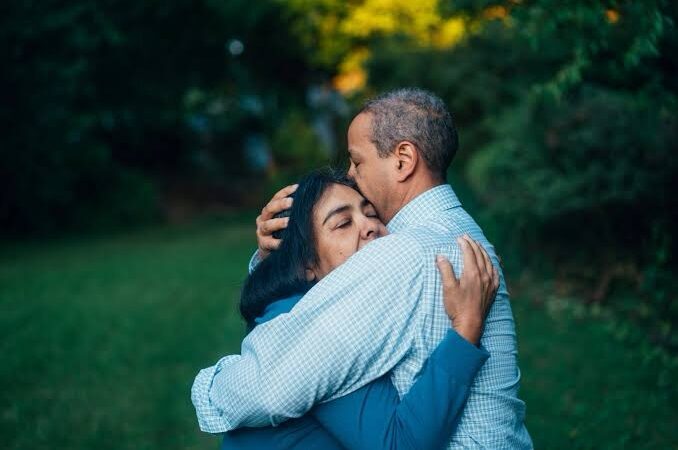
Rejection in dating is something nearly everyone experiences at some point. Whether it’s a first date that doesn’t lead to a second or a deeper connection that doesn’t evolve into a relationship, the sting of rejection can be tough to navigate. However, how you handle rejection speaks volumes about your emotional maturity and resilience. Rather than letting rejection define your self-worth, learning to handle it gracefully can help you grow, stay positive, and move forward with confidence.
Here’s how to handle rejection in dating with grace and poise:
1. Acknowledge Your Feelings
It’s natural to feel disappointed, sad, or frustrated when someone you’re interested in doesn’t feel the same way. Rejection can trigger feelings of self-doubt or insecurity, but it’s important to acknowledge those emotions rather than suppress them. Allow yourself to feel your emotions without judgment—this is a normal part of being human.
Give yourself permission to take a moment to process. Whether it’s talking to a friend, journaling, or just taking some time alone to reflect, acknowledging your feelings is the first step to healing. The key is to not let those emotions define you or linger longer than necessary.
2. Don’t Take It Personally
One of the hardest but most important things to remember when dealing with rejection is that it’s not a reflection of your worth as a person. Often, rejection in dating has little to do with you personally and more to do with circumstances, timing, or compatibility.
• Timing: Maybe the person isn’t ready for a relationship, or perhaps they’re at a different stage in their life.
• Compatibility: Attraction, both emotional and physical, is subjective, and someone may not feel the same connection even though you share great qualities.
• External Factors: There could be factors at play in their life—like a recent breakup, personal goals, or even a busy schedule—that prevent them from pursuing a relationship.
By reframing rejection in these terms, you can help prevent it from becoming a reflection of your value. It’s simply a mismatch in that moment, not a judgment of your worth.
3. Respond with Gratitude and Grace
When you receive rejection, how you respond is crucial to maintaining your dignity and emotional health. If someone turns you down, especially if it’s a polite rejection, try to thank them for their honesty and wish them well. A gracious response shows maturity and respect, and it can help maintain a positive outlook on dating in general.
For example, if someone expresses that they don’t feel a connection, a simple, “I appreciate you being upfront with me. I wish you all the best,” can leave both of you with positive feelings and closure. Being respectful in the face of rejection not only reflects well on you but can also help you avoid any unnecessary drama or negativity.
4. Avoid Overthinking the Situation
It’s easy to fall into a cycle of overthinking after rejection—wondering what went wrong, analyzing every interaction, or questioning your actions. While reflection can sometimes be helpful, overthinking can keep you stuck in the past and prevent you from moving forward.
Instead of getting caught up in the “what-ifs,” focus on what you can control: your response and your next steps. Remember that every dating experience is an opportunity to learn, grow, and refine what you’re looking for in a partner. Use rejection as a stepping stone, not a setback.
5. Give Yourself Time to Heal
If rejection stings, it’s okay to take a break from dating to focus on self-care and healing. Sometimes, the best way to handle rejection gracefully is to step back, regain your emotional balance, and prioritize your well-being. Engage in activities that make you feel good about yourself, whether it’s pursuing a hobby, spending time with friends, or focusing on your personal growth.
Taking this time allows you to return to dating when you’re in a stronger, healthier emotional place, free from any lingering negative feelings. Rushing into another relationship or dating scenario right away can sometimes be a way of avoiding the hurt, but giving yourself space to heal first will only set you up for future success.
6. Focus on Self-Improvement
Rejection can be a chance to learn and grow. If you feel like there was something specific about the interaction that you could improve—whether it’s communication, confidence, or self-awareness—use the experience as motivation to better yourself.
Invest time in activities that boost your confidence and sense of self-worth. This could mean developing new skills, staying active, or cultivating hobbies that make you feel empowered. When you feel good about yourself, rejection becomes easier to handle because your sense of identity is not tied to another person’s validation.
Moreover, self-improvement doesn’t just mean becoming “better” to attract a future partner; it’s about strengthening your sense of self and knowing that you’re worthy regardless of anyone else’s opinion.
7. Keep a Positive Mindset About Future Possibilities
Rejection can feel like a closed door, but in reality, it’s simply redirecting you toward something better. Every “no” brings you one step closer to the right person for you. Just because one person didn’t feel a spark doesn’t mean you won’t find someone who truly appreciates your qualities and shares your vision for the future.
A positive mindset helps you stay open to new possibilities. Keep dating, meeting new people, and putting yourself out there, but without the pressure to find “the one” immediately. Relationships are often about timing, patience, and the right connection at the right time.
8. Surround Yourself with Supportive People
During times of rejection, it’s important to lean on your support system. Talk to friends or family members who uplift and encourage you. Having a circle of supportive people can help you reframe your perspective and remind you of your strengths.
Friends who genuinely care for you will provide reassurance and perspective, helping you remember that rejection doesn’t define you. Sometimes, a conversation with a loved one is just what you need to regain your confidence and move forward.
Conclusion: Rejection Is a Part of the Journey
Rejection, though painful, is an inevitable part of dating. How you respond to it shapes your journey and your emotional resilience. By acknowledging your feelings, reframing the situation, and responding with grace, you not only protect your sense of self-worth but also enhance your ability to move forward and find a relationship that’s right for you.
Remember that rejection doesn’t reflect your value—it’s simply a part of the dating process. Each experience is an opportunity to learn, grow, and become more confident in what you want and deserve. By handling rejection gracefully, you show emotional maturity and resilience, which are key qualities in finding a lasting, meaningful connection.
Tags:
Subscribe To Get Update Latest Blog Post
No Credit Card Required



